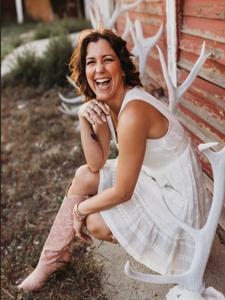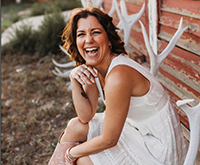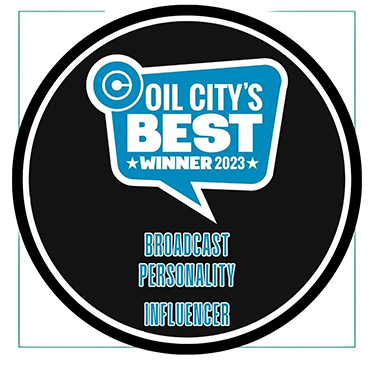Preventive Mastectomy: Frequently Asked Questions and Concerns
Posted February 21, 2018 by Prairie Wife -

When I first began my preventive mastectomy journey, I joined a private Facebook group as a way to find support. It’s been amazing, and not only has it helped me, but being able to offer support to others has been an excellent way for me to heal.
Now that I’m almost two years (can you believe it has been that long) out from my preventive mastectomy I’ve seen that there are many concerns that come up over and over again on the site. I wanted to take a moment and answer in one spot some of the questions I’ve seen pop up the most.
PLEASE keep in my mind I am NOT a medical professional! I will add a note to ask your Plastic Surgeon (AskPS) within any responses that I think should be double-checked. I’ve seen that many PS have completely opposite advice for their patients from what I was told.
Those of you that are reading this that have another opinion or experience based on your experience PLEASE share your thoughts in the comments. I can only share what my experience as a reasonably healthy 34-year-old mother of 5 in a healthy relationship was like.
If you haven’t had this surgery yet I would encourage you to read this post Preventive Mastectomy: 10 Things You Haven’t Read About, But Should Have There are more helpful links at the end of this post.
I’m scared. What if this is the wrong choice?
Fear is normal, and in the end, many factors go into the decision to have a preventive mastectomy. Research and find doctors that you feel comfortable with, take time to make your decision, and trust yourself to make the best choice for you and your family. I was scared to the point of public tears before mine. Now I can see it was 120% the right choice for me.
I have so many people who I value telling me I’m wrong to do this, I’m feeling so angry/alone/doubtful/unsupported…what do I say to them?
See the above comment. Let’s face it, there will always be someone that doesn’t like something you do, and that’s OK. My best response to negative comments is “Thanks for your concern, I’m sure it comes from a place of love. Please know this is my body and my choice. While I’d love your support, if you can’t do that, I’d appreciate your silence about the topic.” If you want an even shorter answer, “I’m sorry you feel that way.” and removing yourself from the conversation works too.

If one more person tells me about their boob job/how I get new boobs out of the deal/asks me how big I want my new breasts I’m going to go crazy…
It’s OK to be sensitive to these questions, but take a deep breath before you allow yourself to respond. People are naturally curious; this IS a big deal and a relatively new concept to many people. These questions never bothered me because 99.9% of the time I knew their intention was to offer comfort or be supportive. I usually answered all these questions in a positive way or with the truth. I get that not everyone is into sharing all the details. It’s OK to say “Thanks for the information.” “I’m sorry, but I don’t feel comfortable talking about this now.” or “I’m still trying to make decisions. I’ll keep you posted.”
How will this affect my ability to be intimate with my partner?
The two main things that go into this are 1. The appearance of your body during the various surgeries and final scars and results, and 2. The pretty high chance that you will have no feeling in your breasts after this surgery. First of all, talk, talk, talk, and talk some more. Don’t be shy. Share your concerns with your partner and prepare them for how your body will be changing. Not all partners go to the PS appointments, and a little bit of preparation goes a long way in how they react to your new look. Also, there will be times when you can’t be intimate as you recover. Let them know about it! I told The Cowboy before all this started, that he needed to know I was going to be talking about this a lot and he had to act interested. I also told him that whatever I said or did he had to tell me 800,000,976 times how beautifully unique and strong I am and how much he loves me.
Regarding the loss of sensation, I have no feeling, and it hasn’t changed anything for us regarding intimacy. Having been through 5 pregnancies and nursing each baby for a year means The Cowboy is used to seeing my body change and having the boobs be a no-touch zone…this went a long way towards helping us navigate this situation.
If you’re still feeling insecure, put on a cute nightie, keep the lights off and communicate your fears to your partner before it becomes an issue. I’ve seen many women who attend counseling alone and with their partner to help them work through this. Get help if you need it!

When can I exercise again?
For me, this was one of the hardest parts of my journey, needing to stay still while my body healed. Especially after my Exchange and Fat Grafting surgeries, where I felt fine and never took any pain meds. Looking back, I truly think that listening to my PS and allowing my body to heal and rest was why I had no infection issues, healed quickly and beautifully, and was able to stick to the original time line of having all my surgeries done in less than a year. Generally, you can start Physically Therapy at three weeks (I highly recommend this) and slowly work back to your regular exercise routine at four weeks. PLEASE remember everyone is different with this! What worked for me as a 34-year-old who regularly exercised before may not be what works for you. Be patient with your body and yourself, and take this time of forced rest to catch up on some great books and Netflix shows! Ask your PS before you begin any exercise.
When can I go back to work?
See the above answer because it’s about the same. Many of us aren’t even cleared to drive until 3 weeks after your first surgery, and I was still needing a nap most days! Yet inevitably, when this question pops up, I see women saying they were driving and off to work 2 weeks later…holy awesome for them…no way I could have done that! I’d say overall, 4 weeks seem to be the time to return to regular jobs, with many women doing part-time until the 6-week mark. Keep in mind that fills, while painless for some, can result in a 2-3 day setback each time. Ask your PS before you make any firm plans.
I am afraid to run/do a pushup/let my kids sit on my lap because I might pop an implant!
This was a massive fear for me, and then I saw this video below, and it helped me a ton. I have trained for a half marathon, paddle boarded, skied, and snowshoed with implants with no problems at all! And there have been some significant falls and epic faceplants along the way lol. With all that experience, I can assure you that it’s pretty hard to rupture an implant (though it CAN happen). When you’ve been cleared by your PS, don’t be afraid to get out there and live your life!
Antibiotics for the dentist?!
This is something that many women aren’t aware of and is another AskPS. Many PS (and Dentists) say that once you have implants, you need to take antibiotics before your dental appointments to reduce the risk of infection. On the other hand, just as many PS (and Dentists) say, it’s not a concern. Call your PS AND your dentist to find out what their recommendations are.
I feel like there is a tight steel band around my ribs. Will that feeling ever go away?
This is one of the hardest parts of the journey. I recall removing the tight surgical bra, ready to finally be comfortable…only to realize that my muscles were causing that painful tightness. My best advice is to take 10 deep breaths to the point of being uncomfortable, but not in real pain, every time you think of it. I was probably doing this a dozen times a day, and was the best thing for relieving that pain (muscle relaxers didn’t seem to touch it). When you’re cleared for exercise Yoga will also help to get you back to feeling comfortable.

I’m a belly sleeper. Will I ever be able to sleep on my stomach again?
For the first few weeks after surgery you have to sleep on your back, and then eventually, you’re cleared to do what feels comfortable…which for the first few months is NOT on your stomach. As a hard-core stomach sleeper, this was hard for me! I found using strategically placed pillows (I didn’t buy anything special just used what we had) allowed me to find a middle ground…but sleeping was never really great with expanders. A few weeks after my last fill, I did notice that I was able to get more and more comfortable as time went on. Now with implants, I can comfortably sleep on my stomach with the help of a few pillows. Ask your PS for exact times when they will allow you to side and stomach sleep.
When should I buy a bra, and what kind should I get?
As far as what bra to wear after you have each surgery and for how long, I’m not going to answer that. You need to ask your PS. When your process is done, wait at least two months after your last surgery before investing in any kind of expensive bra, and know that things can still shift and change up to a year later. I went to Nordstrom (it was well worth the 4.5 hour drive) and had a bra fitting. They have specially trained women that can help you find the right fit. Your breasts will not squish and move like real ones, be prepared that your old favorite bra/brand may not work. It also helps to know your final size for future purchases. Many women have favs, but I think it’s too personal to recommend one. I mostly stayed away from the underwire, because I was afraid to damage the skin and not feel it (I had this happen with a zipper-style sports bra and have the scars to prove it). The only reason I wear a bra is for modesty’s sake and for a bit of support when running. I kept my nipples, which are always stuck at “half mast.” I don’t feel comfortable with them showing through clothing so I have a few lightly lined bras. My breasts are stitched in tight and barely move, so if I can, I use nipple stickers and go without a bra most of the time.
My expanders are hideous/lopsided/misshapen/far apart will the implants look the same way?
Never judge the final look by the expanders. Just look at this post to see side-by-side pictures comparing my mastectomy, expanders, and implants. Have faith in the process and trust your doctors!

I have “fill in the blank” CC in my expanders. What size will I be with implants?
Here’s the deal, you REALLY have to go with your AskPS on this one. It entirely depends on your body type, chest cavity, shoulder size, height, and weight. I ended up with almost 400CC implants, and with fat grafting, I’m at a 34 D at 5’7″, 130lb, and with a broad chest cavity. Other women have 800CC implants and are barely a B! This goes with the type of implants as well. It’s vital to Ask your PS and communicate your questions and concerns and tell them where you want to be at the end. A good PS will tell you what they realistically can and cannot do and should be able to give you what you want. Remember, you always have the right to look for a new doctor if you don’t feel confident with their answers.
I feel completely disconnected from my new breasts/I hate my new look/this isn’t what I thought would happen.
I felt utterly disconnected from my breasts the first year. I didn’t look at them or touch them and tried not to think about them. A few months after I had my final surgery, and I knew what I saw was the final product, things changed. I began to look at them more. I got used to dressing them and even started to enjoy wearing clothes that show off my figure. I’m still sensitive to the fact that I can’t feel if clothing slips, and I tend to go with baggier and higher-cut clothing than I did before, but slowly and surely, I’m beginning to accept and love my new look. Give yourself time, let your body and soul heal, and know one may be healed before the other! I liken it to going through puberty again: hormone swings, boobs you don’t know how to deal with, and emotions abound. Just like puberty, eventually, things settle down you learn to embrace your new look!

My hair is falling out, I have acne (on my face, chest, shoulders, and back), my skin is SO dry, and I am super sensitive to cold HELP!
Most of this is a common side effect of major surgery/trauma. I found that my hair and skin recovered about three months after surgery (just in time for the next one). Lather on lotion and use a hair mask weekly to minimize damage. The best fix I found for bacne is rubbing these pads on the affected area right after I get out of the shower. The sensitivity to the cold issue also eased up about six weeks later, though your breasts will still feel cooler to the touch than the rest of your body. Shivering is miserable for those of us with under the muscle implants because it squeezes the implants like a vice. I’ve taken to keeping a hoodie or cardigan in my purse/car at all times and I have a heated coat that allows me to enjoy snowshoeing and skiing in the Wyoming winters. Layers are the name of the game 😉
How do I monitor myself for breast cancer after surgery?
Another one where you have to ask your PS and/or your Oncologist. They all have their own various opinions. Whatever you do, make sure you still do monthly breast exams!
I keep getting stabbing, fire-like pain in my breasts. What is it? Will it ever go away?
The general answer for what causes this sharp stabbing pain is “nerve pain” when in doubt, ask your PS to rule out infection. Two years out, and I still get these pains, though I can go days at a time with none. If I’ve done a lot of physical activity and not built up to it gradually over a few weeks, I get a lot more of this. I also experience pulling and pain where the Alloderm is stitched in under my armpits and breasts. It’s the nature of the beast and…

I feel guilty complaining about how hard this is. I chose to do it, and YES, I KNOW at least I don’t have cancer…
This is a challenging journey. It’s OK to be emotional and get weary of soul. All these surgeries and recoveries can be daunting and seem never-ending. Take some time to wallow when you need to. Look at it this way, people who go on diets for health reasons complain about how hard it is, and vent…no none judges them for this self-inflicted hardship…and people are often happy to step in and cheer them on. Same with us. Vent when you need to and have a moment or two (or five). If you’re feeling overwhelmed and/or depressed, if people are starting to show concern about your mental well being, maybe it’s time to seek some help and support from a professional.
Phew…that’s a lot of info, but I hope you found it helpful! In the end, the best advice I have is to remember, you ARE #StrongEnough

Here are a few more links that may help you along on your journey.
Packing for Surgery and Preparing for Your First Weeks at Home
Talking to Your Children About Your Preventive Mastectomy Surgery
How to Camouflage Uneven Breasts
Mastectomy: The First Week ( you can follow this to week-by-week posts and pics of every surgery)
I know we have a lot of readers that have been through this process, and feel free to share your thoughts and additional information in the comments.
Categories: Preventive Mastectomy, Support
Tags: , breast cancer, breast surgery, concerns, FAQ, mastectomy, plastic surgery, preventive mastectomy, questions, support, surgery
Previous Post « Simply Earth Recipe Box #discountcode
Next Post Spring Fashion for Kids #giveaway »




